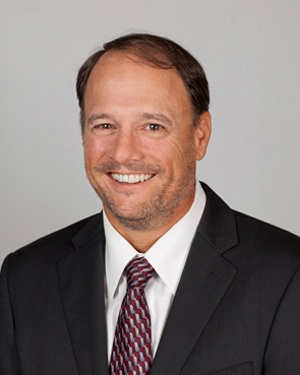Serving As Our Faculty’s Voice
All core faculty members of the Nova Southeastern University Dr. Kiran C. Patel College of Allopathic Medicine (NSU MD) are members of the Faculty Council, as defined by the bylaws. The Faculty Council represents and serves as a voice for the NSU MD faculty.
Faculty Forum and Accountability
The Faculty Council provides a forum for discussion and communication and collaborates with and advises the Dean, academic leadership, and other appropriate individuals or committees on matters related to the well-being and future of NSU MD, as well as its students and faculty. The Faculty Council reports to and is accountable to the faculty and carries out its responsibilities in collaboration with the Dean and the leadership of NSU MD.
The Faculty Council, on its own initiative, considers matters of concern to NSU MD and also considers any matter brought before the faculty, the Dean, or other NSU MD committees. The Faculty Council finds facts relative to such matters, and formulates principles and objectives so as to report its proposals and recommendations or advise the Dean, or other individuals or groups as appropriate.
Leadership
The officers of the Faculty Council consist of a president, a vice president, and the immediate past president, who comprise the Leadership Team of the Council. Terms of office of officers shall begin at the beginning of the Academic Year.
Officers


Faculty Council Committees
The Nominating Committee is responsible for preparing a slate of candidates from among the Core Faculty for the office of vice president and, when it becomes active, for the positions for the Faculty Council Representative committee. The Nominating Committee is also responsible for making recommendations to the Dean identifying recommended faculty members for service on college committees. To promote a broad viewpoint in all issues affecting faculty, the committee is required to consider all forms of diversity in its identification of candidates for open positions. Members of the Nominating Committee may not be candidates for these positions.
The Representative Committee is composed of the Faculty Council Leadership Team and elected Core Faculty representatives from appropriate units/departments. The committee charge is to consider and formulate short- and long-term goals of the Faculty Council and college.
College Committees
The Merit and Promotion Committee assists the Dean in developing standards for assessing the accomplishments of faculty with regard to faculty promotion and eligibility for continuing contract status. The Committee reviews the credentials of all prospective faculty who are proposed to be appointed at the rank of Associate Professor or Professor, reviews applications for promotion of faculty to the rank of Associate Professor or Professor and reviews the credentials of those eligible faculty being considered for multi-year contracts. Following review, the Committee makes recommendations regarding appointments, promotions and multi-year contracts to the Dean.
The Admissions Committee develops and implements the policies related to the application/admissions process and is responsible for selection of all medical students of the college. The Committee is composed of faculty members, with the addition of student representatives as students enroll and progress in the program. The Dean appoints the chair and committee members and determines the appropriate number of members and ensures the Committee’s composition appropriately represents the different constituencies within the college. The Chair of the Admissions Committee is responsible for providing data relevant to quality standards and goals with regard to the application/selection/admissions processes and activities of the college.
The Curriculum Committee advises the Dean on matters related to undergraduate medical education. The Committee develops, reviews, assesses, and recommends changes to the content, curricular structure, learning environment, assessment methodologies, and educational goals of the Undergraduate Medical Education (M.D.) program and evaluates the courses, curriculum, and program outcomes as a whole.
The Student Progress and Advising Committee (SPAC) is responsible for reviewing the progress of each student and determining the status of each student’s enrollment and/or academic progress in the college, including continuation, promotion to the next academic year, academic probation, remediation, dismissal, or any variation thereof that the Committee deems appropriate.
Academic Performance
The Student Progress and Advising Committee continuously monitors a student’s academic
performance. Information upon which assessment of satisfactory progress is made includes:
mastery of competency-based behaviors, skills, and knowledge; letter grades; written
evaluations; data submitted by the faculty regarding cognitive and non-cognitive skills;
scores on the United States Medical Licensing Examination (USMLE); and scores on Clinical
Skills Examinations.
Competencies
Students’ mastery of the graduation competencies is monitored by the Committee. Students
are expected to progress in their attainment of clinical competency. Assessment of
student competency during basic science courses and clerkships is evaluated independent
of the actual course grade.
The Diversity Committee advises the Dean on matters related to diversity in the college, including the identification of diversity goals, the recruitment and retention of diverse students, faculty, administrators and staff, and maintenance of a welcoming environment to all associated with or who come in contact with NSU MD. The Committee develops, reviews, assesses, and recommends changes to college goals, policies and practices related to diversity.
The Faculty Practice Committee advises the Dean on matters related to the clinical activities of NSU MD. The Committee develops, reviews, assesses, and recommends changes to college activities related to college’s clinical operations (this may include the operation of residency programs/GME). The Committee shall evaluate the need for specific service lines or faculty, the adequacy of the support systems for the faculty’s clinical activities, the evolving nature of patient care delivery systems, and potential strategies to respond productively in the changing world of healthcare.
The Quality and Policy Committee is broadly responsible for coordinating, directing and conducting comprehensive NSU MD continuous quality improvement activities. Its members represent both college and NSU constituencies and interests and work collaboratively to thoughtfully review, assess, and improve the college’s activities and ensure they are effective and adhere to LCME accreditation standards and that necessary policies are appropriately adopted and disseminated.
The Committee reviews NSU MD bylaws (Doc) every two years or as needed, and considers proposed changes brought to it as well as changes proposed by its own members. The Bylaws Committee makes recommendations regarding such changes to the Faculty Council Leadership.
The Dean may appoint Ad Hoc committees to gather information appropriate to their charge and forward advice and recommendations concerning NSU MD policies to the Dean and the Executive Committee for consideration and approval.
